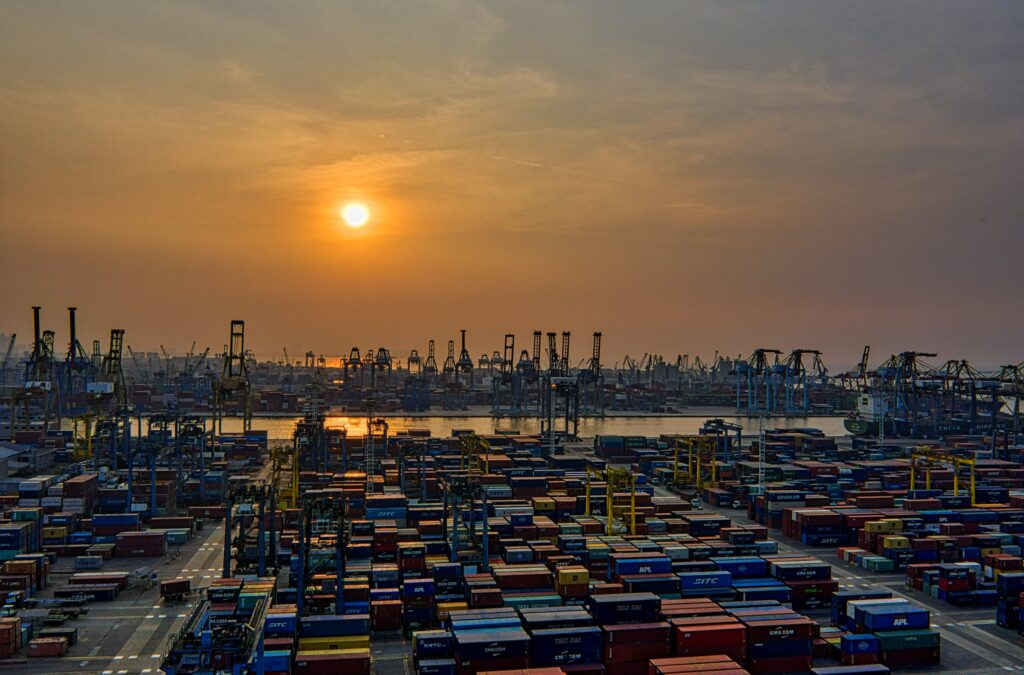Trade compliance and logistics have always been tightly interwoven, and the most successful companies understand how to manage both to avoid risk and take advantage of opportunities. Case in point: the extraordinarily volatile environment companies find themselves in, especially in the United States, where it seems our only preemptive to the daily news is reactionary.
This month’s Trade Compliance Topic illustrates the extent of the impact world events have on international trade and provides a gentle reminder and awareness of the government actors involved in enforcing policies as well as how these policies affect you.
It is important to realize that threat of conflict or the threat of economic sanction are tools governments use to forward their own national interests. A couple of years ago when the U.S. announced troop withdrawal from Syria the Turkish government said they would invade Syria; a few moments later the Trump administration tweeted that economic sanctions would be placed on Turkey if it went through with the planned incursion Turkish President Recep Tayyip Erdogan called President Donald Trump’s bluff, and moments later, BAM!!! sanctions were placed. Turkey felt the pain, and six days later, the sanctions were called off.
Although short-lived, sanctions against Turkey showed the Trump administration’s eagerness to announce sanctions it also its unsteadiness in applying them. Sanctions against Turkish government ministries and officials were also accompanied by the tweeted threat to “totally destroy and obliterate the Economy of Turkey. “This use of sanctions may signal a more unpredictable future for all.
So, who are the U.S. government agencies who enforce these sanctions?
Several agencies, control international trade, although you must pay particular attention to two:
- The Office of Foreign Assets Control (OFAC) administers a number of different sanctions programs. The sanctions can be either comprehensive or selective, using the blocking of assets and trade restrictions to accomplish foreign policy and national security goals. OFAC oversees 32 separate sanctions programs in all, not including those that include individuals or companies.
- The Bureau of Industry and Security (BIS) vigorously administers and enforces such controls to stem the proliferation of weapons of mass destruction and the means of delivering them, to halt the spread of weapons to terrorists or countries of concern, and to further important U.S. foreign policy objectives. The BIS enforces the Export Administration Regulations and Antiboycott Regulations.
At a high level, think of OFAC as regulating money and BIS as regulating product.
The U.S. government stretches its long arms across borders through a concept of extraterritorial jurisdiction. Without getting too far into the weeds, please accept that extraterritorial jurisdiction basically relates to two fundamentals: – prescriptive jurisdiction the regulation of conduct, namely the location of the conduct) and adjudicative jurisdiction (the location of the party).
The carrot dangled in front of any international trader is access to the U.S. financial market. Violate U.S. laws and run the risk of being excluded, simple as that.
Whether this is fair, or not, powerful governments have weaponized their participating government agencies with great success. In light of this threat, many countries have also banned shipments of goods to conflict regions.
How do you cope?
We are in a fortunate position whereby we do not have to choose sides, in fact it’s best if you don’t. Rather, stay attuned to the fast-paced geopolitical issues that may not only aggravate our administration, but any foreign administration and plan for both outcomes.
Please remember, U.S. corporate ownership or control of a non-U.S. company can mean that U.S. sanctions apply directly (in case of Cuba, Iran, Syria, North Korean or Crimean sanctions). Even if such sanctions do not apply directly in your home countries, U.S. ownership and control usually means operational involvement of U.S. persons such that most companies consider policies that either recuse involvement of such U.S. persons or set forth restrictive corporate policies on doing business with sanctioned territories.
Working with U.S. financial institutions or trading goods where U.S. dollars are involved also means increased U.S. sanctions scrutiny as financial institutions act as gatekeepers for the review of sanctions risks. Even non-U.S. financial institutions seek to comply with U.S. sanctions given, among other things, the risk of sanctions for processing or facilitating financial transactions with U.S. sanctions targets.
Dealing in U.S.-origin hardware, software, and technology (“Items”) can mean that U.S. sanctions and export control jurisdiction attaches. Thus, non-U.S. companies should assess the U.S. nexus of their supply chain, prioritizing identification of those Items that are perhaps dual-use or subject to higher controls. Inadvertent re-export of Items subject to U.S. law, not only to sanctioned territories and parties but also to countries subject to higher U.S. export controls in general, can result in violations of not only U.S. law, but laws in your home country.
As always, the SBDC is here to assist: wisconsinsbdc.org/goglobal

